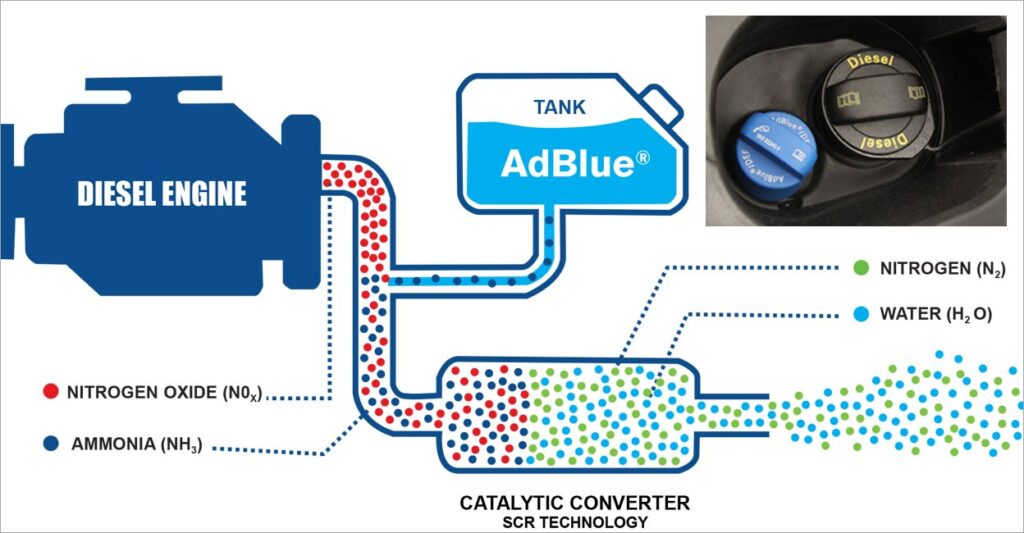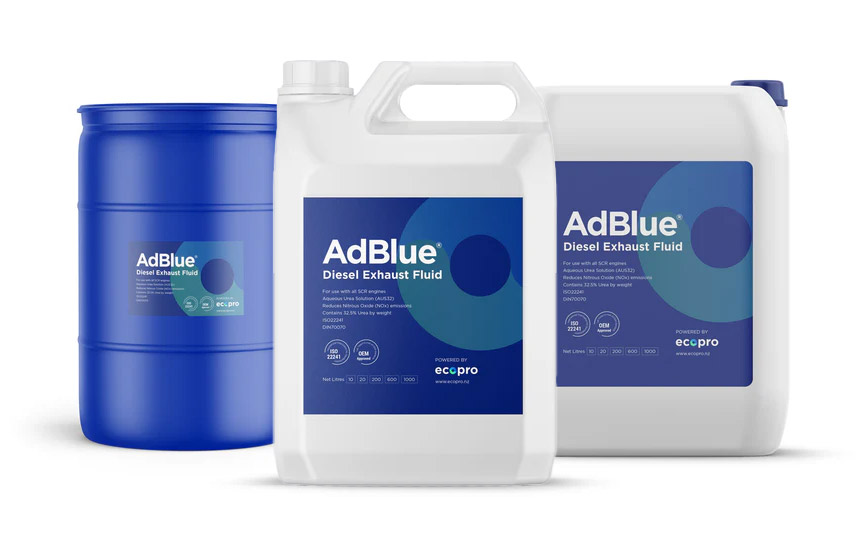AdBlue, also known as Diesel Exhaust Fluid (DEF), is a high-purity urea solution used in diesel engines to reduce harmful emissions. By converting nitrogen oxides (NOx) in the exhaust gases into harmless nitrogen and water vapor, AdBlue helps vehicles meet stringent emissions standards and improve air quality.

How Does AdBlue Work?
AdBlue works in conjunction with a Selective Catalytic Reduction (SCR) system installed in modern diesel engines. Here’s a step-by-step explanation of the process:
- Injection: AdBlue is injected into the exhaust system, where it vaporizes and decomposes into ammonia and carbon dioxide.
- Reaction: The ammonia reacts with nitrogen oxides (NOx) in the SCR catalyst, converting them into nitrogen and water vapor.
- Reduction: This chemical reaction significantly reduces the harmful NOx emissions produced by diesel engines.
Benefits of Using AdBlue
- Environmental Compliance: AdBlue allows diesel engines to meet Euro 6 and other international emissions standards, contributing to cleaner air.
- Fuel Efficiency: Vehicles using AdBlue and SCR technology often experience improved fuel efficiency.
- Extended Engine Life: By reducing NOx emissions, AdBlue helps minimize engine wear and tear, potentially extending the lifespan of the vehicle.
How to Use AdBlue
- Refill Regularly: Keep an eye on your vehicle’s AdBlue levels and refill as needed. Most vehicles have an indicator light to alert you when it’s time to top up.
- Proper Storage: Store AdBlue in a cool, dry place away from direct sunlight. Ensure the container is tightly sealed to prevent contamination.
- Avoid Spills: When refilling, take care to avoid spills, as AdBlue can be corrosive to certain materials.
Common Questions About AdBlue
- What is AdBlue made of? AdBlue is a solution of high-purity urea (32.5%) and deionized water (67.5%).
- Is AdBlue toxic? AdBlue is non-toxic and safe to handle, but it should be stored and used according to the manufacturer’s guidelines.
- Can I use water instead of AdBlue? No, water cannot replace AdBlue. The specific chemical composition of AdBlue is essential for the SCR system to function correctly.
AdBlue plays a crucial role in modern diesel engines, making them more environmentally friendly and efficient. By understanding its importance and proper usage, you can help reduce your vehicle’s emissions and contribute to a cleaner environment.

Order your AdBlue online and save!
Use Code 10ECOPRO10 for 10% OFF your first order
EcoPro’s is a 32.5% solution of ultra-high purity urea and pure deionised water required by most modern diesel engines.

